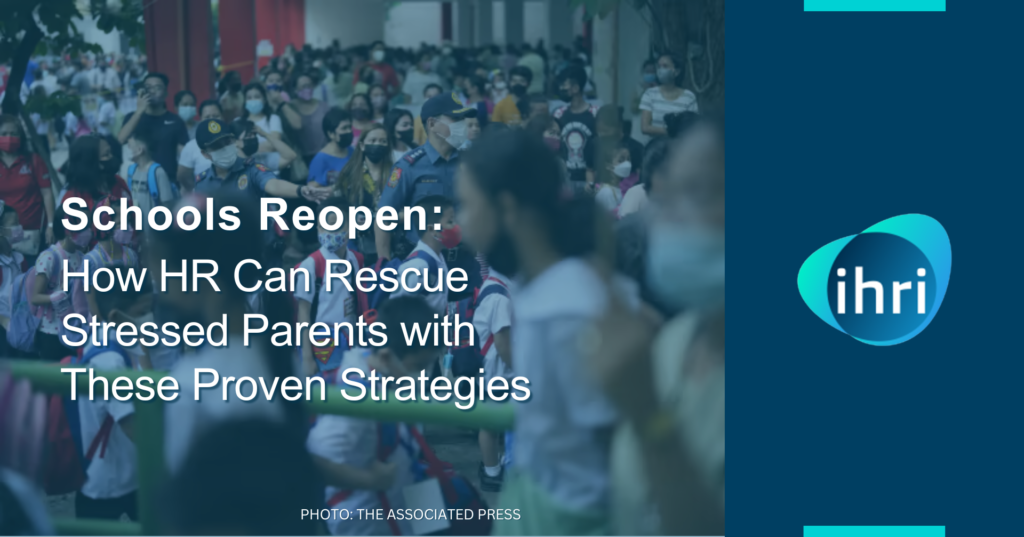As schools across the Philippines resume classes, many working parents find themselves in a challenging balancing act between professional responsibilities and their children’s educational needs. HR departments play a pivotal role in supporting employees during this transition. Here are some essential strategies HR can implement to help working parents navigate this period successfully:
1. Implement Flexible Working Hours
Offering flexible working hours allows parents to manage their work schedules around their children’s school schedules. This flexibility can reduce stress and help employees maintain productivity while attending to family responsibilities.
HR Action: Establish core working hours where employees are expected to be available, but allow flexibility outside these hours to accommodate personal needs. Use tools like flexible start and end times or compressed workweeks to provide additional support.
2. Promote Remote Work Options
Continuing remote work options, even partially, can help working parents manage their time more effectively. Remote work reduces commuting time and allows parents to be more present for their children during school hours.
HR Action: Ensure that remote work policies are clear and provide employees with the necessary tools and resources to be productive from home. Regularly check in with remote workers to address any challenges they may face.
3. Create a Supportive Work Environment
Encouraging a supportive and understanding work environment is vital. Managers should be trained to understand the unique challenges faced by working parents and to offer the necessary support.
HR Action: Foster open communication and provide platforms for employees to share their experiences and solutions. Encourage managers to be empathetic and flexible when dealing with working parents.
4. Provide Childcare Assistance
Childcare assistance can significantly ease the burden on working parents. This could include on-site childcare facilities, partnerships with local childcare providers, or financial subsidies for childcare services.
HR Action: Conduct surveys to understand the specific childcare needs of employees and tailor assistance programs accordingly. Consider offering emergency childcare services for unexpected situations.
5. Offer Mental Health Support
Balancing work and family responsibilities can be stressful. Providing access to mental health resources, such as counseling services and stress management workshops, can help employees maintain their well-being.
HR Action: Promote a culture of wellness by regularly sharing mental health resources and encouraging employees to prioritize their mental health. Consider providing mental health days to allow employees time to recharge.
6. Establish Employee Resource Groups (ERGs)
Creating ERGs for working parents can provide a support network where they can share experiences, advice, and resources. These groups can also offer feedback to HR on improving policies and support systems.
HR Action: Facilitate the formation of ERGs and provide them with the resources they need to thrive. Encourage participation and recognize the contributions of these groups to the organization’s culture.
7. Organize Educational Workshops
Offering workshops on time management, stress relief, and other relevant topics can equip working parents with the skills they need to handle their dual responsibilities effectively.
HR Action: Partner with experts to deliver these workshops and make them accessible through recordings for those who cannot attend live sessions. Regularly solicit feedback to ensure the workshops meet employees’ needs.
Conclusion
The reopening of schools presents both challenges and opportunities for working parents. By implementing these strategies, HR professionals can create a supportive environment that helps employees achieve a healthy work-life balance. This not only leads to happier, more engaged employees but also enhances overall productivity and workplace morale.
By proactively addressing the needs of working parents, organizations demonstrate their commitment to employee well-being and build a more resilient and adaptable workforce.
Becoming an Expert
International HR Institute provides global certification programs for modern-day HR professionals. Understand how to further provide these support measures by taking the Certified Practitioner in Human Resources (CPHR) and the Certified Compensation and Benefits Professional (CCBP) certification programs.


